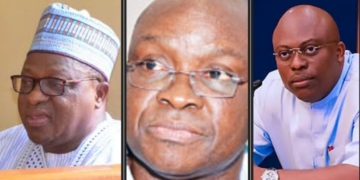Around the world, currency redesigns occur regularly and in Nigeria, the naira has undergone four redesigns, with the most recent one taking place in 2022, after about 20 years ago.
One of CBN’s primary responsibilities under the CBN Act of 2007 is currency management, which is where the naira redesign process is being done. The CBN can conduct monetary policy effectively, that is, by keeping a close eye on the expansion of the money supply, by ensuring the integrity of the naira as legal currency, and by ensuring the efficiency of the supply of local legal tender.
On October 26, 2022, the Central Bank of Nigeria (CBN) stated that the redesigned N200, N500, and N1,000 banknotes would be made available to the public. According to the CBN, the redesigned N200, N500, and N1,000 notes and new restrictions on large cash withdrawals will help prevent money laundering and promote the use of digital payments as the standard.
The Central Bank of Nigeria also implemented a withdrawal policy that limited withdrawals from ATMs, point-of-sale machines, and over-the-counter locations to just N100,000 for individuals and N500,000 for corporate organizations per week; however, it was increased to N500,000 for individuals and N5,000,000.
Nigeria, like many developing nations, has a highly cash-based economy because cash is the primary form of payment. The Central Bank of Nigeria’s (CBN) cashless policy was first implemented in Nigeria in December 2011 and officially launched in Lagos in January 2012. The policy went into force on July 1st in several states, including Rivers, Anambra, Abia, Kano, Ogun, and the F.C.T. In the meantime, the strategy was fully implemented across the country in July 2014.
The cashless policy has now been adopted and hurt small businesses, particularly those that primarily operate in rural areas and engage in daily cash transactions. Also, it had led to cases of violence among citizens, riots, and deaths amongst others.
New Naira Policy, New Violence
Despite the directives given by the President, Muhammadu Buhari limiting the legal tender status of old notes to only N200 and pushing the deadline to April 10, it does not seem to have any effect yet as many Nigerians still do not have access to either old or new naira notes.
Nigerians cried out in protest, due to the shortage of the new naira and the rejection of the old naira which resorted to a series of violence in different parts of the country.
The growing anger over the cash crisis resulting from the Central Bank of Nigeria’s currency redesign policy and violence in some states has paralyzed social and economic activities claiming the lives of people, and leaving some injured.
On the 16th of February, In Warri, Delta State, youths protecting the rejection of the old naira notes razed several vehicles parked in front of First Bank Plc, Access Bank and Union Bank branches located in the Orovwohworun area of the Udu.
Also, on February 3rd, In Oyo state, the protest was hijacked by suspected miscreants who set ablaze a police station and stole the station’s plasma television set. They vandalised a branch of Wema Bank in the area and looted some roadside shops.
Cases of Violence were also recorded in Sagamu, Ogun state, with banks razed by fire and properties destroyed.
New Naira Policy, The Only Way
A financial analyst, Samuel Oyekanmi, told WITHIN NIGERIA that the new naira policy is a good one but there can always be an alternative. In his words, he said “there’s always a better way to do things and of course, right now the policy is not a bad one but what we just have is an implementation problem and that’s the issue we are dealing with”.
Oyekanmi explained that “If there had been adequate planning, where all sides and possibilities were considered, we would have probably been able to come up with a better implementation of a longer window for people to deposit their old nodes and then educate people so that they understand what the policy is about.
“Right now, most Nigerians are kicking back against the policy because they don’t understand it. So CBN could have done that, but of course it doesn’t mean that there are no other policies that they could adopt even with the cash still in circulation. We had about 3.2 trillion Naira in circulation as of December and 2.5 trillion were outside the banking box.
“So one of them is the need to encourage people to use other forms of payment. Not because there is no other option but because using a cashless policy is better, cheaper, faster and easier.
“Unfortunately, now in Nigeria, we have given Nigerians only one option. The option is to use alternative forms of payments and the alternative form of payment is not easier, it’s not faster, and it is not seamless. In fact, we stand a risk of losing money. It just puts you in a problem. So that’s the major problem”.
Oyekanmi lamented that despite the currency being a good one, Nigerians are feeling the brunt of cash scarcity.
” I would expect a number of people however, whatever you’re selling, to be able to give an option for people to pay via transfer or pay via POS, or with their ATMs, or whichever works for them. And all you just have to do is wait and ensure that you get your alert. Have a mobile banking up where you can check your balances before whoever is sending the money leaves your place.
“So that helps you reduce the risk of fake alerts and these people’s options. When you give people the option, then they weigh it between cash and transfer. Which one is going to favor me right now? Is there a possibility based on what I’ve been hearing for the day? Is there a possibility that I will have a debited account but unsuccessful?
“So when they don’t have options, they tend to pick the ones that that is cheaper, easier, faster, seamless, and the CBN, they should have done done in first place to make sure that people have options but would incentivize other forms of payment over cash so Nigerians will be encouraged to adopt those those means of payments.
“So my advice to Nigerians would be to be creative, try to be innovative, accept the changes, and then try to create a system that works for you based on whatever you’re doing. Be a trader, a corporate person working in the company earning a salary at the end of the month, just create something that works for you and I think that would be fine” he said.
Another expert, Abdulazeez Kuranga, a macroeconomic strategist said the alternative is for the CBN to allow old high denomination notes to continue to be legal tender and increase the supply of the new notes.
According to him, the CBN should also increase the deadline by which old notes cease to become legal tender. In that way, the current cash crunch will disappear.
“To copy this Naira redesign drive, citizens should continue to embrace the use of digital channels for payments, and buy in bulk to reduce transaction charges associated with increased usage of the cards or mobile transfers for parent,” he said




Discussion about this post